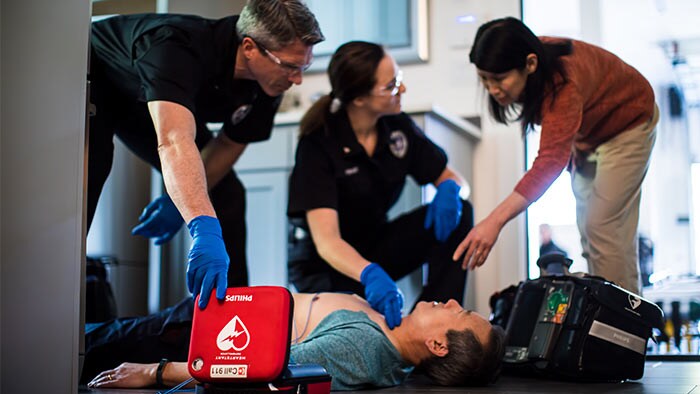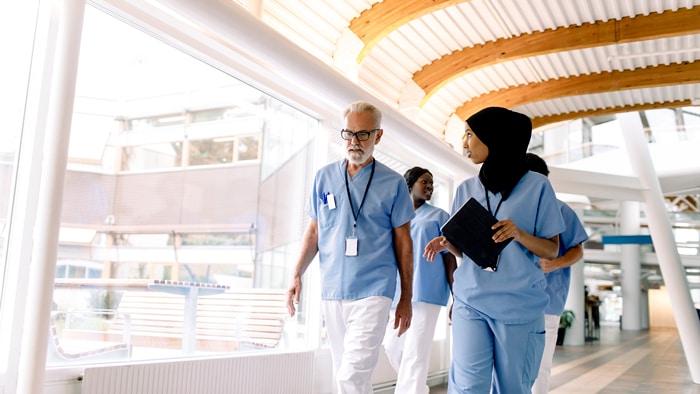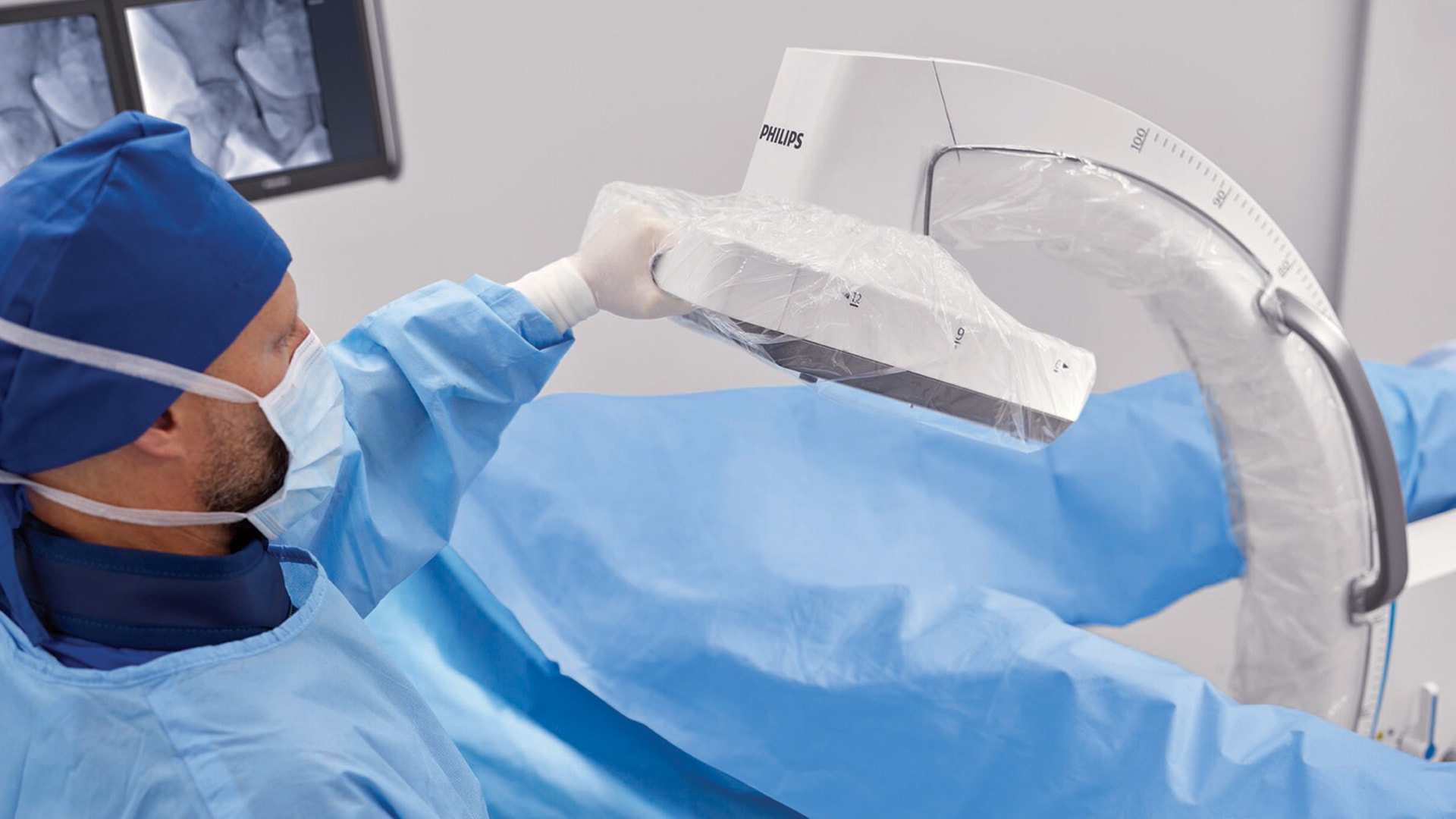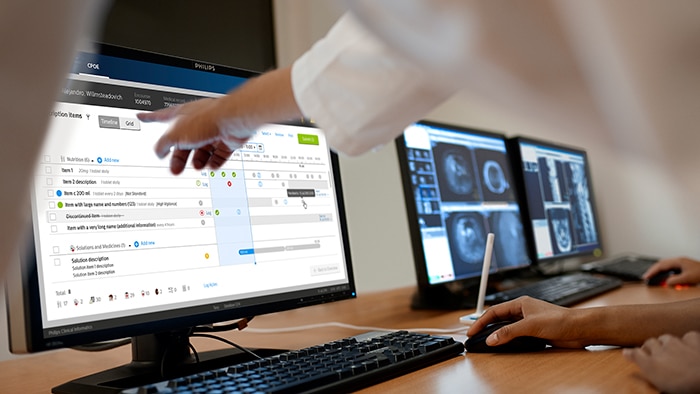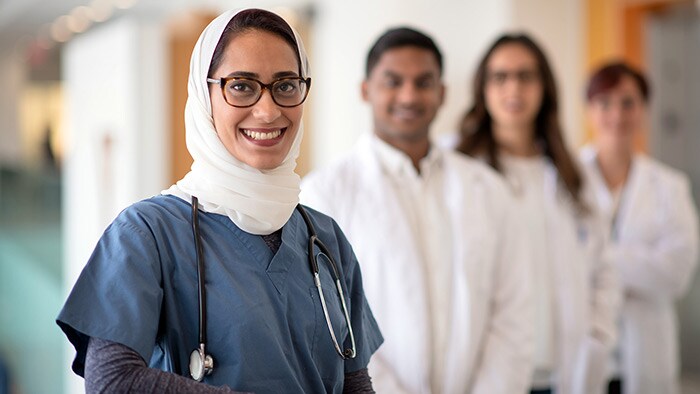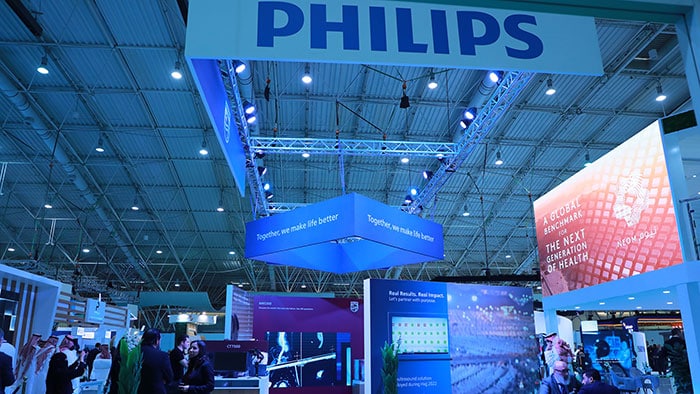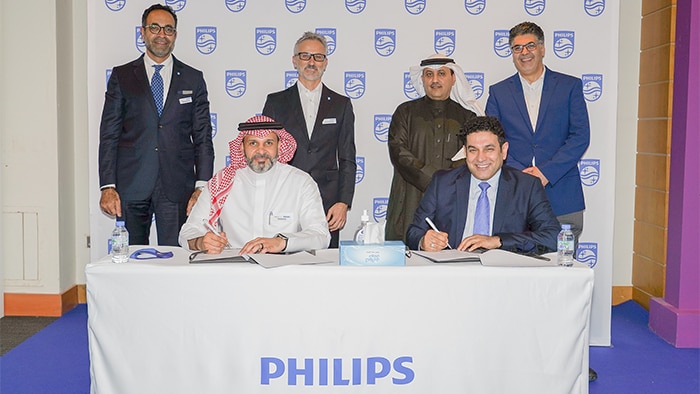Jan 29, 2019
Mecca, Saudi Arabia, hosts first global project for ‘Heart Safe City’
Ministry of Health and Philips work together to increase survival rates of Sudden Cardiac Arrest
Dubai, United Arab Emirates – Royal Philips (NYSE: PHG, AEX: PHIA), a global leader in health technology, and the Ministry of Health of the Kingdom of Saudi Arabia, announced a collaboration on the Heart Safe City project to increase survival rates from sudden cardiac arrest. The program will be tested in the city of Mecca utilizing the expertise of Philips. The program will leverage a unique end-to-end solution combining education programs to increase awareness of CPR, the use of publicly-available AEDs (Automated External Defibrillator), and new technologies to strengthen the ‘chain of survival’ from the moment an incident occurs to the patient reaching the hospital.
The announcement was made during a press conference at Arab Health 2019 in Dubai, UAE, the largest medical exhibition and conference in the Middle East, which was attended by His Excellency Dr. Tawfiq Al Rabiah, the Saudi Minister of Health along with senior officials from Philips.
We are very excited to test this staged program in Mecca. This will be the first city in Saudi Arabia to participate in this kind of program and the project will better prepare us for shaping a Heart Safe City around Mecca that is both efficient, effective and technologically enabled. It is a pragmatic approach to better managing morbidity and mortality associated with cardiovascular disease. Leveraging solutions across the chain of survival to combat the millions of deaths that occur from cardiac arrest each year.”
Dr. Tawfiq Al Rabiah
Minister HE
Cardiovascular disease is a leading cause of global mortality, accounting for almost 17 million deaths annually – 44% of all non-communicable disease deaths globally [1]. In the Kingdom, that percentage is 37% according to the WHO statistics [2]. It is estimated that about 40-50% of all cardiovascular deaths are due to sudden cardiac arrest [3]. The average age for developing heart disease in the Kingdom is 56, 10 years younger than the global average [4].
The Kingdom also annually hosts over 2 million pilgrims in Mecca from around the world. It is estimated 64% of admissions to the ICU during the Hajj season are due to cardiovascular disease. Over 45% of these patients unfortunately do not survive [5]. The sheer volume of incidents makes Mecca an excellent choice as the inaugural city and represents the start of a program of critical importance to us at the Ministry and the Kingdom overall.”
Dr. Tawfiq Al Rabiah
Minister HE
It is estimated that 70 to 80 percent of sudden cardiac arrest incidents happen outside the hospital [6]. For every minute that passes without CPR and defibrillation, an SCA victim’s chance of survival decreases by 7 to 10 percent [6]. These cardiac arrests can happen anywhere, at any time. With bystander intervention and treatment with an AED, the survival triples to 31.4 percent [7].
Philips is dedicated to providing integrated cardiology solutions with a focus on prevention, diagnosis and treatment. By working directly with the Ministry of Health to offer a large-scale, integrated suite of services and expertise, we have the opportunity to make a significant positive impact on the chances of survival from sudden cardiac arrests that occur outside of the hospital.”
Ozlem Fidanci
CEO of Philips Middle East and Turkey
Strengthening the chain of survival for sudden cardiac arrest The chain of survival has four critical steps: 1) alerting emergency medical services; 2) giving CPR to the patient; 3) delivering treatment using an AED; and 4) advanced critical life support, provided by the emergency medical services. Training and awareness programs increase the likelihood of a lay first responder being on-hand to provide CPR and treatment using an AED. In addition to the AEDs themselves, technology applications including mapping AEDs and automated alerting of nearby lay first responders have the potential to significantly strengthen the chain of survival and increase survival rates. [2] https://www.who.int/nmh/countries/sau_en.pdf [3] http://www.arabnews.com/node/1259916/saudi-arabia [5] The Hajj Health Requirements: time for a serious review?, The Lancet Vol 387, February 27, 2016 [6] Cardiac Arrest vs Heart Attack, American Heart Association, September 16, 2016 [7] https://www.ehstoday.com/health/world-heart-day-and-aeds-enabling-regular-people-be-heroes-20-years
[1] http://apps.who.int/iris/bitstream/handle/10665/272596/9789241565585-eng.pdf
About Royal Philips
Royal Philips (NYSE: PHG, AEX: PHIA) is a leading health technology company focused on improving people's health and enabling better outcomes across the health continuum from healthy living and prevention, to diagnosis, treatment and home care. Philips leverages advanced technology and deep clinical and consumer insights to deliver integrated solutions. Headquartered in the Netherlands, the company is a leader in diagnostic imaging, image-guided therapy, patient monitoring and health informatics, as well as in consumer health and home care. Philips generated 2017 sales of EUR 17.8 billion and employs approximately 77,000 employees with sales and services in more than 100 countries. News about Philips can be found at www.philips.com/newscenter.


